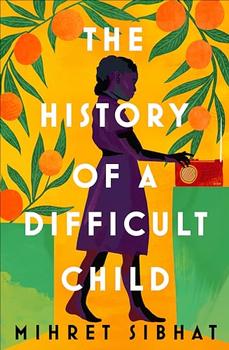Summary | Excerpt | Reading Guide | Reviews | Beyond the Book | Readalikes | Genres & Themes | Author Bio

A Novel
by Mihret SibhatExcerpt
The History of a Difficult Child
At the beginning is God, and for some reason God is trying to get rid of all the water in His possession, so He grabs His containers and turns them upside down, hurling down the water with all His might, as though He were mad at somebody. The water lands on a small town in southwestern Ethiopia, where this phenomenon is known as bokkaa or zinab, depending on which language your family speaks. It comes down with such violence that, if you're the type of girl who loves to disobey her father and run around in the rain, you'd mistake the liquid blanketing your face for a kind of punishment. When the thunder starts GOU-GOU-GOU-GOU-ing as if God Himself is chasing someone across the floor of the sky, and the lightning cuts through the thick black cloud like it's trying to open the sky for the Return, you do not disobey your father anymore—you run up the front stair into the house.
Your father is pacing around the living room muttering something, but you can't hear what he's saying because of the pounding on the corrugated tin roof, so you get very close to him and find out that he's praying, Egzio mahrene, Egzio mahrene, Egzio mahrene, begging God for forgiveness because, clearly, He's got to be mad at somebody if He's sending all this water at once even though He does it quite often. Your father turns around and sees that you're wet, so he takes off his gabi and covers you with it without even thinking that he was mad at you just a moment ago for the running around. He gets rid of the wet gabi and grabs a fresh one, which he wraps around himself. He opens a side of the wrap like a big bird extending its wing, and you enter through it. It's a little game you like to play, until you start accusing each other of hogging the gabi. You both go sit on one of the two benches on the veranda to watch the rain.
It rains like this every year in August. Even in the year of the Great Famine when severe drought in the north caused a world-famous famine that led Bob Geldof and his friends to pen a song called "Do They Know It's Christmas?"—they being Ethiopian children—although half of Ethiopia's children are Muslims or followers of Indigenous religions who, drought or not, don't give a qub about anybody's Christmas, and the other half are Orthodox Christians whose ancestors were so well acquainted with the Virgin Mother and her Son for at least a century longer than Bob Geldof's and celebrated Christmas on January 7, Jesus's real actual factual birthday.
What children in the north may not know is rain like this. Here in the southwest, water flows and flows down so much that the government brought farmers from drier parts of the country and resettled them in the villages around the Small Town and others like it. Here is a small plot of land; here's some cash for an ox; I know what's best for you; you live here now. That's one of the reasons why, on any given Saturday at the farmers' market near the edge of town, one would hear six or more languages spoken.
But today is not Saturday, and nobody has to leave the house for anything, so you and your father sit on the veranda watching the rain gather into a small flood rushing through the gutters on both sides of the asphalt road the Italians built during World War II, when they came to civilize Ethiopia by deploying poison gas against resistance fighters who survived their guns, by disemboweling pregnant women and burning up entire families in Addis Ababa, by mass murdering priests in a monastery and more. You know this because you listen to the radio with your father every day, but now is not radio time, and you're on the veranda watching the rain erode the grassless surface of your sloping front yard, bringing more of the red out.
Out of the corner of your left eye, you see the flood coming from your backyard, carrying a big piece of paper with a familiar blue on one side. You're sure it's the blue of the poster you buried under the guava tree in the furthest part of your backyard a few days ago, beyond the turmeric and ginger sprouts filling the spaces between orange and coffee and mango trees, right before you reach the eucalyptus grove marking the end of the property. How the poster got out of its grave and made it past all those plants to end up in the front yard is a mystery—it's as if someone dug it out and purposely set it off on its current path—and you feel petrified briefly because you're afraid your father is going to see it. For a moment you consider leaving your father's gabi to go ensure the poster disappears in the flood, but you don't want to call his attention to it. Sometimes you can't believe the words that come out of this man who's supposed to love you—if he finds out what you did to the poster, he might even call you cursed: What have you done, you cursed child, are you trying to get us killed?
From The History of a Difficult Child, used with the permission of the publisher, Viking. Copyright © 2023 by Mihret Sibhat.






Your guide toexceptional books
BookBrowse seeks out and recommends the best in contemporary fiction and nonfiction—books that not only engage and entertain but also deepen our understanding of ourselves and the world around us.